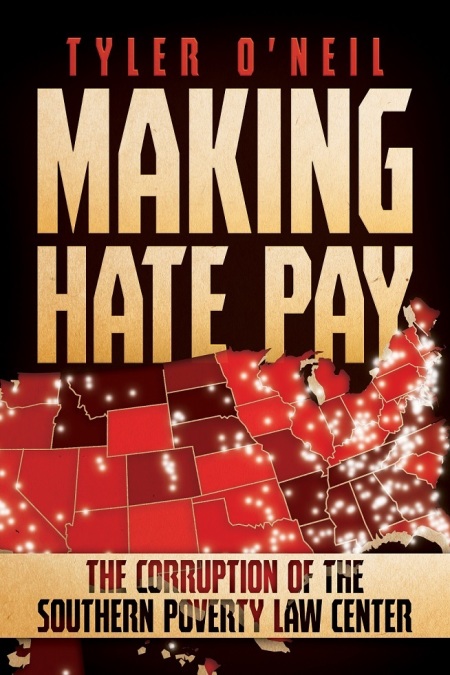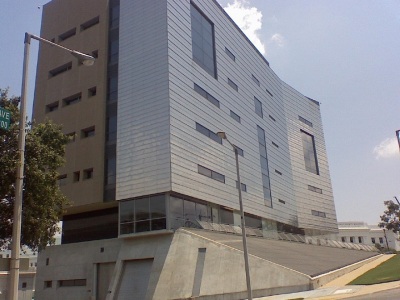‘Making Hate Pay’: New book documents corruption, scandals at Southern Poverty Law Center

A new book challenges Americans to reconsider their support for the Southern Poverty Law Center, a far-left civil rights organization, in light of a recent string of controversies regarding sexual harassment, racism, and the demonization of conservative groups.
Founded in 1971 with the goal of combating the Ku Klux Klan, the SPLC has been criticized in recent years for labeling many conservative Christian groups and public figures as hateful.
There were also recent reports of sexual harassment and racial discrimination last year within the organization, leading to the resignations of co-founder Morris Dees and President Richard Cohen.
PJ Media's Senior Editor Tyler O’Neil, a former reporter with The Christian Post who has closely followed the SPLC, critiques the progressive group in his new book, Making Hate Pay: The Corruption of the Southern Poverty Law Center, released last month by Post Hill Press.
In the Introduction to the book, O’Neil lays out the many documented blemishes on the record of the Montgomery, Alabama-based group.
“The SPLC singles out ‘hate’ on the far-right but not the far-left. It faced a very public sexual harassment and racial discrimination scandal. It has a history of raising far more money than it spends on programs and keeping millions in Cayman Island accounts,” wrote O’Neil.
“It has a malleable definition of hate that it applies to its political enemies. It has paid millions to settle a defamation lawsuit after acknowledging it falsely accused someone of being an extremist. Former staffers have admitted that the hate accusations leveled by the SPLC are a ‘con,’ a deceptive scheme to raise money.”
O’Neil talked with CP about his book, SPLC co-founder Morris Dees, and whether he believes the group is gaining ground in light of recent controversies. Below are excerpts from that interview.
CP: What led you to write this book?
O'Neil: [I was] surprised and shocked and indeed horrified by some of the things that they had been doing when it comes to demonizing conservative Christians and other conservatives by calling them "hate groups" and by encouraging big tech corporations, the media, and others to blacklist and demonize people just because the SPLC disagrees with them.
One of the most eye-opening situations was after Charlottesville when Apple decided to give them a million dollars and partner with them.
One of their speakers had a testimony before Congress asking big tech and the government to act against "hate groups" in the name of fighting white supremacist terrorism.
Of course, white supremacist terrorism is horrible, and condemning it and fighting it is a good idea, but the SPLC draws this ridiculous comparison to mainstream conservative groups like Alliance Defending Freedom and the Family Research Council, which not only have nothing to do with terrorism or white supremacy, they aren't even spewing anything like this “hate” that they're accused of.
CP: On the issue of the Charlottesville rally, do you believe it is common for the SPLC to benefit from tragedies like the “Unite the Right” rally?
O’Neil: From what I have seen, the answer to that question is very much yes. When the horrific Pittsburgh synagogue shooting took place, the Southern Poverty Law Center took the opportunity to blame Trump for it, despite the fact that the shooter hated Trump, that Trump has been a champion for Jews and for Israel.
They say, “Oh, Trump is responsible for hate and let's use this as a cudgel.” I don't know if they raised more money off of that, but they have traditionally benefited from these horrific events happening.
CP: You devoted a good deal of attention to Morris Dees the man, especially his past activism and his history of sexual misconduct allegations. Why did you feel it was important to include so many details on him?
O'Neil: Many of those who've followed the SPLC for a long time have said that “Morris Dees is the SPLC and the SPLC is Morris Dees.” While that's hyperbole, there's a strong element of truth to it. He co-founded the organization, he developed the donor base, his imprint is indelibly stamped on this group.
To some degree, it’s for good. I covered at the beginning of the book how a lot of the cases that the SPLC started focusing on were very noble. They enabled the first blacks to be elected to statewide offices in Alabama for the first time since Reconstruction. That is a legacy of Morris Dees just as much as the negative stuff is.
But you also see by studying Morris Dees' history, it starts to make some sense of these claims of racial discrimination and sexual harassment. This is a guy whose family was connected to the KKK, who represented a KKK member, and who talks about black servants as "hands" that worked on his father's farm.
None of this is to say that he's a horrific racist, but I think that Morris Dees' history helps explain why so many blacks considered the SPLC to be a plantation.
And his sexual exploits also explain why women did not feel comfortable at the organization.

CP: As you know, in 2018 the SPLC had to pay an ex-Muslim activist $3.3 million in damages for wrongfully labeling him Islamophobic. In 2019, the prominent liberal magazine Current Affairs published an editorial labeling the SPLC "everything that's wrong with liberalism." Between this and the current litigation against the group that you documented in the book, do you believe the SPLC is starting to finally lose ground in the public eye?
O'Neil: I think they've lost a lot of ground, but they're also still considered an easy thing for liberal journalists and activists to cite and use. They recently hired Margaret Huang, the former executive director of Amnesty International USA, to become the SPLC's president and CEO in April. They also have connections to the Council on American Islamic Relations, and they've spearheaded a lot of liberal causes, especially when it comes to big tech.
I think their influence is still very strong, and it's possible that its stronger than it ever has been just because of the attention given to them.
And that's why the book is so important, because I don't think the SPLC is losing credibility the way that it should be.
CP: How do you respond to those who agree that the SPLC has some problems here and there, yet still view it as a group that does more good than bad?
O'Neil: The SPLC does a good amount of good even today. Their work in reforming the Alabama prison system and the Mississippi prison system are positive contributions, but if you look at the vast majority of what they focus on, their fundraising, their press coverage, the things that they push the most are these monitoring of hate groups and falsely accusing people of hate.
They traffic in this routine defamation that is extremely dangerous, that props up America's cancel culture, that divides conservatives and liberals, that pits people against one another, and I would say most of their work is in that direction.
When you have an organization that is lying to its donors, that has these scandals, that is pushing these things that divide America, that's their main impact right now, so they seriously need to reform and return to their original mission.
That's what I tell the people who defend the SPLC: look, you're not wrong. The group still does good work, but they need to focus on the good work and drop their demonization, their defamation, and their lying to their donors.





















